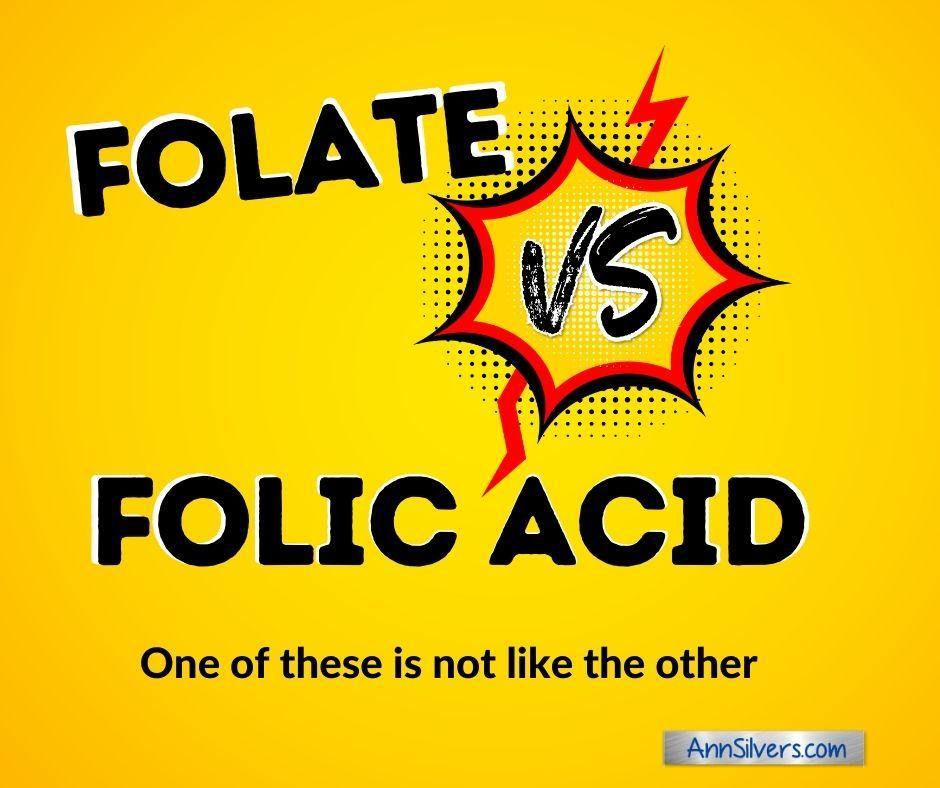Natural Folate vs Folic Acid: What You Should Know

Folate and folic acid often get lumped together, but they’re not the same—and the difference matters for your health.
One is the natural form of vitamin B9 found in whole foods and high-quality supplements.
The other is synthetic, never found in nature, and added to many fortified foods and low-cost vitamins.
In this post, you’ll learn why choosing real folate over folic acid can make a big difference, plus how to find it in foods and supplements that support your well-being.
What You’ll Learn About Folate and Folic Acid
| Folate vs Folic Acid: Why the Difference Matters |
| Folate and Folic Acid Foods |
| What to Look for in Folate Supplements |
| B-Complex Vitamins: What to Know Before You Buy |
| Folate v Folic Acid Recommended Dose |
| When to Take B Vitamins |
Notes: The contents of this post are not intended to be medical advice. It is recommended that you seek the advice of personal medical professionals.
Folate vs Folic Acid: Why the Difference Matters
Folate is the natural form of Vitamin B9.
Folic acid is the synthetic form of the vitamin used in many supplements and as an additive to fortify food.
Folic acid does not have the same chemical makeup as folate, and folic acid does not occur naturally in food.
Folic acid is basically a folate knock-off.
To make this vitamin even trickier to understand, many people use the terms folate and folic acid interchangeably when talking about B9. But they are NOT the same thing.
Folic acid as a supplement for B9 was introduced in the 1940s, but there are growing concerns about ingesting large amounts of this unnatural substance.
If you take folic acid supplements, your body needs to use four different biochemical reactions to convert the folic acid to usable folate. Some people’s genetics allow them to do this more easily than others.
There is recent research to suggest that folic acid at high doses may cause cancer or make cancer worse.
Sticking to folate instead is a better way to go.
Best Folate and Folic Acid Foods

As I mentioned earlier, natural food sources of folic acid = zero.
When you find lists of folic acid foods, those lists often equate folic acid with folate.
Folic acid is added to some foods, such as processed grain products, including cereals and breads.
Folate, on the other hand, does show up in foods naturally.
Foods high in folate include:
- Beef liver (highest source of folate)
- Cruciferous vegetables (i.e., Brussels sprouts, broccoli, kale)
- Asparagus
- Beans and lentils
- Seafood (i.e., scallops, crab, or oysters)
- Eggs
- Citrus fruits (i.e., oranges)
- Avocado
What to Look for in Folate Supplements
Natural vitamin B9 (folate) appears on supplement labels designated by several different terms, such as:
- folate,
- L-methylfolate,
- L 5 methyl-tetrahydrofolate (5-MTHF),
- Metafolin (a folate patented by Merck), or
- Deplin (a prescription form of L-methylfolate).
If the label says folic acid, you’re getting the synthetic B9, not the natural.
B-Complex Vitamins: What to Know Before You Buy
A popular way to get Vitamin B9 as a supplement is in a B-complex supplement that includes all the B vitamins. (The various B vitamins potentially support each other in ways that science has not yet clearly identified.)

Most B-complex supplements have folic acid as vitamin B9. You have to be cautious about what you're actually getting and read the label.
Some examples of high-quality B-complex supplements with folate are:
- Integrative Therapeutics Active B-Complex
- Garden of Life Mykind Organic Whole Food B Complex Supplement with Folate, B12, Niacin, B6, Biotin etc
Folate v Folic Acid Recommended Dose
The RDA (Recommended Daily Amount) for supplementing folate is 400 μg for adult women and men.
A UL (Upper Limit) of 1000 μg (1 mg) has been established for folic acid. There is no UL for actual folate. (See Folate - Health Professional Fact Sheet (nih.gov))
When to Take B Vitamins
Take your B vitamins in the morning and early afternoon because they can be energizing and could interfere with sleep if taken late in the day.
Some people feel nauseous after taking B vitamins. This can typically be alleviated by taking B supplements at the same time as eating a meal.
I may receive small compensation for sales from links in this post, but there is no increased cost to you.
- Ann Silvers








Comments 0